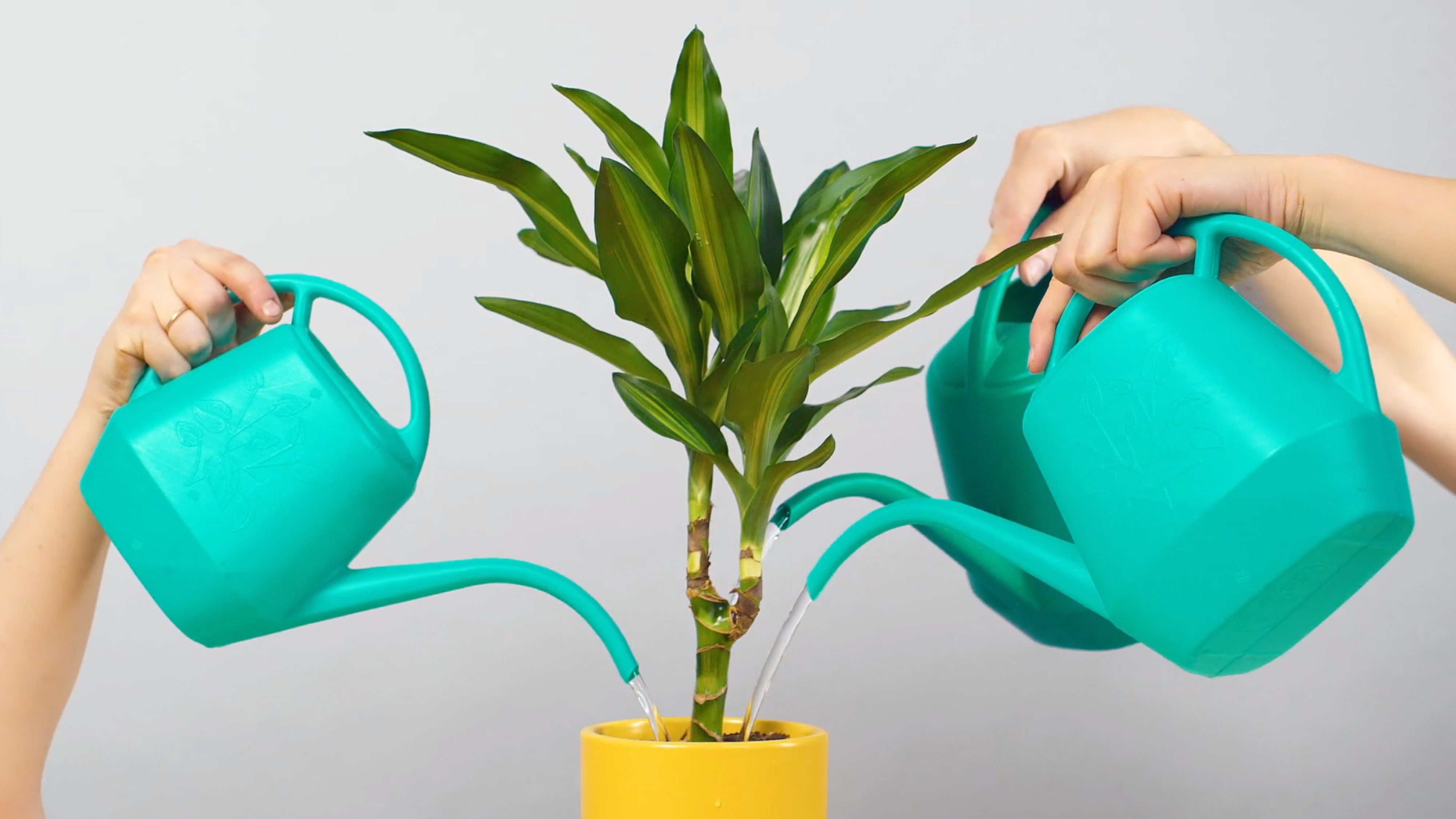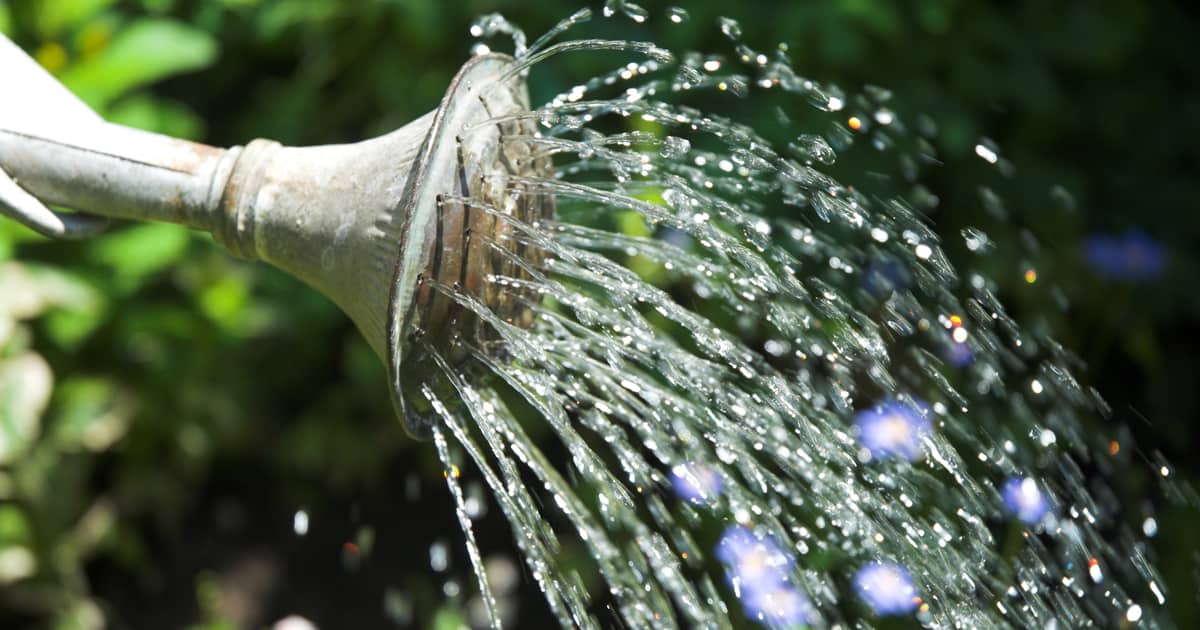Contents
- I. Introduction to Plant-Based Hydration Strategies
- II. Benefits of Plant-Based Hydration
- III. Exploring Various Plant-Based Hydration Sources
- IV. Incorporating Plant-Based Hydration into Your Daily Routine
- V. Plant-Based Hydration for Athletes and Fitness Enthusiasts
- VI. Frequently Asked Questions about Plant-Based Hydration
- 1. Is plant-based hydration as effective as traditional methods?
- 2. What are some examples of plant-based hydrating foods?
- 3. How much water should I drink when following a plant-based hydration strategy?
- 4. Can I rely solely on plant-based hydrating foods for my fluid intake?
- 5. Are there any specific plants or herbs known for their hydrating properties?
- 6. Can plant-based hydration strategies benefit athletes and active individuals?
- 7. Can children follow a plant-based hydration strategy?
- 8. Are there any potential side effects of relying solely on plant-based hydrating foods?
- 9. Can I still consume caffeinated beverages while following a plant-based hydration strategy?
- 10. Are there any specific considerations for pregnant women following a plant-based hydration strategy?
I. Introduction to Plant-Based Hydration Strategies

In recent years, plant-based diets have gained immense popularity due to their numerous health benefits and positive impact on the environment. Alongside this trend, people are also exploring plant-based hydration strategies as an alternative to traditional methods. Plant-based hydration is all about replenishing your body’s fluids using natural sources derived from plants.
1. The Importance of Hydration
Staying hydrated is crucial for maintaining optimal bodily functions and overall well-being. Water plays a vital role in regulating body temperature, lubricating joints, transporting nutrients, and flushing out toxins.
2. Benefits of Plant-Based Hydration Strategies
Plant-based hydration strategies offer a range of benefits that make them appealing to health-conscious individuals:
- Nutrient-rich: Many plant-based beverages are packed with essential vitamins, minerals, and antioxidants that contribute to overall health.
- Sustainable: Choosing plant-based options reduces reliance on animal products and supports eco-friendly practices.
- Variety of Choices: Plant-based hydration provides a wide array of options like coconut water, herbal teas, fruit-infused water, and vegetable juices.
- No Added Sugar or Artificial Ingredients: Unlike some commercial sports drinks or sodas which can be high in sugar and artificial additives, plant-based alternatives often contain only natural ingredients.
3. Popular Plant-Based Hydration Sources
If you’re looking to incorporate more plant-based hydrating foods into your routine, consider these options:
- Cucumber Water: Infuse slices of cucumber in water for a refreshing and hydrating drink that also provides a subtle flavor.
- Coconut Water: Known for its natural electrolytes, coconut water is a great option to replenish fluids after physical activity.
- Herbal Teas: Herbal teas like peppermint, chamomile, or hibiscus offer hydration along with various health benefits.
- Fresh Juice: Extracting juice from fruits and vegetables like oranges, watermelons, or celery can provide a hydrating and nutrient-dense beverage.
4. Incorporating Plant-Based Hydration in Your Daily Routine
To make plant-based hydration part of your lifestyle, consider these tips:
- Create Infused Water: Experiment with different combinations of fruits, herbs, and vegetables to create personalized infused water blends.
- Mix Up Smoothies: Blend together hydrating fruits like berries or melons with leafy greens and plant-based milk for a delicious smoothie packed with nutrients.
- Brew Herbal Teas: Explore the world of herbal teas by trying out diverse flavors that suit your taste preferences while keeping you hydrated throughout the day.
II. Benefits of Plant-Based Hydration
:max_bytes(150000):strip_icc()/plant-moisture-indicator-clever-items-091622-b4e7e1e5941948e389359a1059e75d64.png)
Plant-based hydration offers numerous benefits for overall health and well-being. By incorporating plant sources into your hydration strategy, you can enjoy the following advantages:
1. Enhanced Nutritional Profile
Plant-based drinks such as coconut water, herbal teas, and fruit-infused water provide essential vitamins, minerals, and antioxidants that are beneficial for your body. These natural beverages offer a wide range of nutrients that can help support your immune system, improve digestion, and promote healthy skin.
2. Increased Hydration Levels
Plant-based fluids are an excellent source of hydration due to their high water content. Whether it’s consuming fresh fruits or vegetables with high water content or opting for plant-derived beverages like aloe vera juice or cucumber-infused water, these choices can contribute to your daily fluid intake while keeping you refreshed.
3. Electrolyte Replenishment
Sports drinks derived from plants often contain electrolytes such as potassium and magnesium which help replenish the minerals lost through sweat during physical activities. Choosing plant-based options over traditional electrolyte drinks ensures that you’re hydrating with natural ingredients without added sugars or artificial additives.
4. Digestive Health Support
Certain plant-based beverages like ginger tea or peppermint-infused water have been known to aid in digestion by reducing bloating and promoting bowel regularity. These natural remedies can soothe an upset stomach and provide relief from digestive discomfort.
5. Environmental Sustainability
The consumption of plant-based fluids aligns with eco-friendly practices as they have a lower carbon footprint compared to animal-derived alternatives like dairy milk or processed sports drinks in plastic bottles.
Incorporating plant-based hydration into your daily routine can contribute to a healthier lifestyle while minimizing your impact on the environment. By opting for natural beverages and increasing your water intake through plant sources, you can experience improved overall well-being and enjoy the benefits of these nutrient-rich options.
III. Exploring Various Plant-Based Hydration Sources

When it comes to staying hydrated, many people turn to traditional sources such as water or sports drinks. However, there is a wide range of plant-based options that can provide the necessary hydration while offering additional health benefits. Let’s take a closer look at some of these plant-based hydration sources:
1. Coconut Water
Coconut water has gained popularity in recent years for its refreshing taste and natural electrolyte content. It is rich in potassium, which helps regulate fluid balance in the body and supports muscle function. Additionally, coconut water contains antioxidants that may aid in post-workout recovery.
2. Aloe Vera Juice
Aloe vera juice is not only soothing for sunburns but also a great hydrating option. It contains essential vitamins and minerals like vitamin C and E, along with enzymes that aid digestion and support overall well-being.
3. Watermelon Juice
Watermelon juice not only quenches thirst but also provides excellent hydration due to its high water content (about 92%). This juicy fruit also packs essential nutrients like lycopene, which acts as an antioxidant and helps protect against cell damage.
4. Herbal Infusions
In addition to their delicious flavors, herbal infusions offer various health benefits while keeping you hydrated throughout the day. Popular choices include chamomile tea known for its calming properties or peppermint tea renowned for aiding digestion.
5. Fresh Fruit Smoothies
Fresh fruit smoothies are an excellent way to combine hydration with essential nutrients from fruits like berries, bananas, or citrus fruits packed with vitamins C and antioxidants.
By incorporating these plant-based hydration sources into your daily routine, you can ensure proper hydration while enjoying a range of health benefits. Remember to choose options that align with your taste preferences and dietary requirements. Stay hydrated and nourished with these natural alternatives!
IV. Incorporating Plant-Based Hydration into Your Daily Routine

When it comes to staying hydrated, many people reach for sugary sports drinks or artificially flavored beverages, unaware that there are natural and plant-based alternatives available. By incorporating plant-based hydration into your daily routine, you can not only quench your thirst but also provide your body with essential nutrients and minerals.
The Power of Coconut Water
One popular option for plant-based hydration is coconut water. This refreshing beverage is naturally rich in electrolytes such as potassium, magnesium, and calcium, making it an excellent choice for replenishing fluids after exercise or on a hot day. Additionally, coconut water contains antioxidants that help protect your cells from damage caused by free radicals.
To incorporate coconut water into your daily routine, consider enjoying a glass in the morning to kickstart your day or using it as a base for smoothies instead of processed juices. You can also freeze coconut water in ice cube trays and add them to plain water for a burst of flavor without any added sugars.
The Benefits of Herbal Infusions
If you prefer warm beverages or want to explore new flavors while hydrating yourself, herbal infusions are an ideal choice. Herbal teas like chamomile, peppermint, or hibiscus not only provide hydration but also offer various health benefits depending on the herbs used.
Chamomile tea promotes relaxation and aids digestion while peppermint tea helps soothe stomach discomforts. Hibiscus tea is known to support cardiovascular health due to its high antioxidant content. Experiment with different herbal infusions until you find the ones that resonate with you the most.
Incorporating Fresh Fruits and Vegetables
Another way to stay hydrated while enjoying delicious flavors is by incorporating fresh fruits and vegetables into your diet. Fruits such as watermelon, strawberries, oranges, and grapes have high water content and can help keep you hydrated throughout the day.
Vegetables like cucumber, celery, lettuce, and zucchini are also great choices for hydration. You can add them to salads or enjoy them as snacks to increase your daily fluid intake while benefiting from their nutritional value.
Hydration on the Go
To ensure you stay hydrated even when you’re on the go, consider carrying a reusable water bottle with you at all times. This way, you can refill it throughout the day with plant-based beverages such as coconut water or herbal teas.
You can also infuse your water with slices of citrus fruits or herbs like mint or basil for added flavor. Having a portable hydration option readily available will encourage you to drink more fluids consistently.
V. Plant-Based Hydration for Athletes and Fitness Enthusiasts
Staying properly hydrated is crucial for anyone engaging in physical activity, especially athletes and fitness enthusiasts. While traditional sports drinks have long been the go-to choice, there is a growing trend towards plant-based hydration options that offer numerous benefits. Let’s explore some strategies for plant-based hydration that can help optimize performance and promote overall well-being.
1. Replenish Electrolytes Naturally
Electrolytes play a vital role in maintaining fluid balance and muscle function during exercise. Instead of relying on artificial sources found in sports drinks, consider incorporating natural electrolyte-rich foods into your diet. Foods like bananas, coconut water, chia seeds, and leafy greens are excellent sources of essential electrolytes such as potassium, magnesium, calcium, and sodium.
2. Harness the Power of Fruits
Fruits are not only delicious but also great hydrators due to their high water content. Including fruits like watermelon, oranges, berries, and grapes in your pre- or post-workout routine can help quench your thirst while providing essential vitamins and minerals required for optimal performance.
3. Experiment with Herbal Infusions
Incorporating herbal infusions into your hydration routine can add flavor while offering additional health benefits. Try infusing water with herbs like mint leaves or slices of fresh ginger to create refreshing beverages that aid digestion and provide antioxidant properties.
4. Sip on Natural Sports Drinks
If you prefer the convenience of sports drinks but want to avoid artificial ingredients often found in commercial brands, opt for natural alternatives made from real fruit juices or coconut water mixed with a pinch of salt for added electrolytes.
5. Hydrate with Homemade Smoothies
Smoothies are an excellent way to combine hydration and nutrition. By blending fruits, vegetables, plant-based milk or yogurt, and a liquid of your choice (such as coconut water), you can create a delicious and hydrating beverage packed with essential nutrients.
Remember that individual hydration needs may vary depending on factors such as duration and intensity of exercise, climate, and personal physiology. It’s important to listen to your body’s signals and adjust your fluid intake accordingly.
Incorporating plant-based hydration strategies into your routine can not only enhance athletic performance but also promote overall health. Experiment with different options to find what works best for you, keeping in mind the importance of staying hydrated before, during, and after physical activity.
VI. Frequently Asked Questions about Plant-Based Hydration
1. Is plant-based hydration as effective as traditional methods?
Absolutely! Plant-based hydration strategies can be just as effective, if not more so, than traditional methods. By incorporating natural sources of electrolytes and hydrating foods into your diet, you can replenish your body’s fluids and maintain optimal hydration levels.
2. What are some examples of plant-based hydrating foods?
There are numerous plant-based foods that can help keep you hydrated. Some examples include watermelon, cucumber, oranges, strawberries, spinach, coconut water, and chia seeds. These foods contain high amounts of water content and essential nutrients that aid in hydration.
3. How much water should I drink when following a plant-based hydration strategy?
The recommended daily intake of water varies depending on factors such as age, weight, activity level, and climate conditions. However, a general guideline is to consume at least half your body weight in ounces of water each day when following a plant-based hydration strategy.
4. Can I rely solely on plant-based hydrating foods for my fluid intake?
Incorporating plant-based hydrating foods into your diet is beneficial; however it’s important to remember that they shouldn’t replace regular consumption of plain water or other hydrating beverages entirely. Water is still the most essential source of hydration for our bodies.
5. Are there any specific plants or herbs known for their hydrating properties?
Absolutely! Certain plants and herbs have been used traditionally for their hydrating properties for centuries. Examples include aloe vera juice (known for its soothing effect), mint leaves (refreshing taste with cooling effects), and hibiscus tea (known for its natural diuretic properties).
6. Can plant-based hydration strategies benefit athletes and active individuals?
Absolutely! Plant-based hydration strategies can be extremely beneficial for athletes and active individuals. The natural electrolytes found in plant-based foods can help replenish lost fluids during exercise, improve performance, and aid in post-workout recovery.
7. Can children follow a plant-based hydration strategy?
Yes, children can also benefit from incorporating plant-based hydrating foods into their diet. However, it is important to ensure they are getting enough nutrients overall and that their fluid intake is appropriate for their age and activity level.
8. Are there any potential side effects of relying solely on plant-based hydrating foods?
If you rely solely on plant-based hydrating foods without consuming enough water or other beverages, you may risk dehydration or not meeting your body’s fluid requirements adequately. It’s crucial to strike a balance between both sources of hydration.
9. Can I still consume caffeinated beverages while following a plant-based hydration strategy?
Moderate consumption of caffeinated beverages like coffee or tea is generally acceptable when following a plant-based hydration strategy. However, excessive caffeine intake may have diuretic effects that could potentially counteract the benefits of proper hydration.
10. Are there any specific considerations for pregnant women following a plant-based hydration strategy?
Pregnant women should consult with their healthcare provider regarding any dietary changes they wish to make during pregnancy, including adopting a plant-based hydration strategy. It’s important to ensure adequate nutrient intake for both the mother and the growing baby.

Shelby Cortez is a dynamic and passionate individual with a strong background in the fitness industry. With a Bachelor’s degree in Exercise Science from the prestigious University of California, she has gained extensive knowledge about the human body and its mechanics. Shelby’s dedication to fitness goes beyond her education, as she has spent years honing her skills as a personal trainer and group fitness instructor. Her expertise in workout routines and nutrition has helped countless individuals achieve their fitness goals. Shelby’s commitment to health and wellness is evident in her own lifestyle, as she consistently pushes herself to new limits in the gym. Whether it’s weightlifting, yoga, or HIIT workouts, Shelby Cortez is the go-to expert for all things fitness-related.
